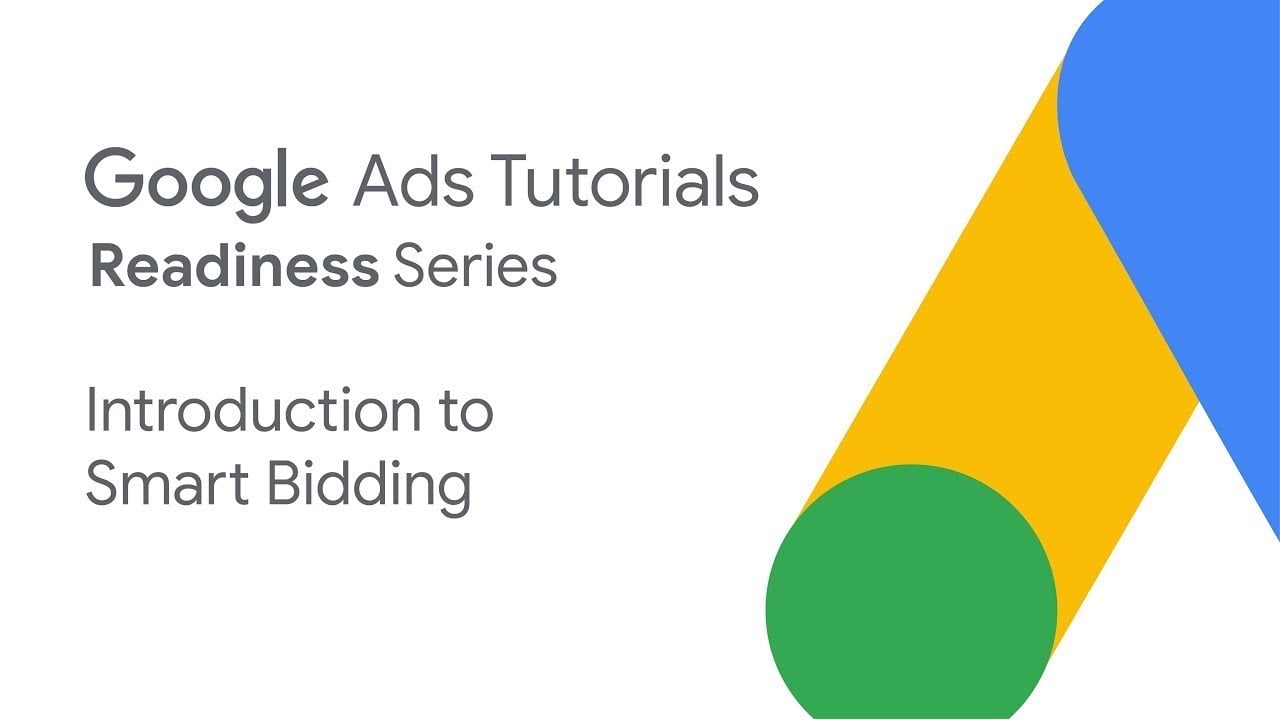- google ads smart bidding
- Not All Conversions Hold Equal Value
- Google Ads Smart Bidding Strategies
- Bidding Adjustments Based On Various Factors
- Optimizing Bids For Mobile Device Users
- Targeted Bidding Based On Specific Location
- Optimizing Bids Based On Location Intent And Time
- Using Remarketing Lists To Optimize Bids
- Ad Characteristics Impact Bid Optimization
In the ever-evolving digital landscape, staying ahead of the competition is crucial for businesses to thrive. And when it comes to online advertising, GoogleAds has become a predominant player.
But what if there was a way to take your ads to the next level? Enter GoogleAdsSmartBidding.
This cutting-edge feature utilizes powerful algorithms to automatically adjust bids, optimizing your ad spend and driving valuable conversions. With the ability to tailor bids based on multiple factors such as device, location, time, and more, the possibilities are endless.
Join us on a journey to discover the untapped potential of Google Ads Smart Bidding and unlock the secrets to maximizing your ROI like never before.
| Item | Details |
|---|---|
| Topic | Optimizing ROI and Conversions with Google Ads' Smart Bidding |
| Category | Ads |
| Key takeaway | In the ever-evolving digital landscape, staying ahead of the competition is crucial for businesses to thrive. |
| Last updated | December 27, 2025 |
google ads smart bidding
Google Ads smart bidding is a feature that allows advertisers to bid toward conversion values in order to maximize return on investment (ROI). It takes into account the fact that not all conversions hold equal value and offers various bidding strategies based on this understanding.
Bids can be adjusted based on factors such as device, physical location, location intent, weekday and time of day, remarketing lists, ad characteristics, interface language, and browser. For example, bids can be optimized for mobile device users searching for nearby locations or adjusted based on specific location even with broader targeting.
Remarketing lists can also be used to optimize bids for search, display, and hotel ads. Additionally, smart bidding factors in various aspects such as operating system, search query, site placement, user behavior, product attributes, and mobile app ratings.
It also takes into consideration price competitiveness and seasonal performance trends when optimizing bids. In the future, there will also be a feature to optimize bids based on mobile app ratings.
Overall, Google Ads smart bidding aims to maximize ROI by adjusting bids to align with the most valuable conversions.Key Points:
- Google Ads smart bidding allows advertisers to bid towards conversion values to maximize ROI.
- Different bidding strategies are offered based on the understanding that not all conversions have equal value.
- Bids can be adjusted based on factors like device, location, time of day, ad characteristics, and more.
- Remarketing lists can be used to optimize bids for various types of ads.
- Factors such as operating system, search query, user behavior, and mobile app ratings are considered in smart bidding.
- The aim of Google Ads smart bidding is to align bids with the most valuable conversions to maximize ROI.
Sources
https://support.google.com/google-ads/answer/7065882?hl=en
https://ads.google.com/intl/en_us/home/measurement/bidding/
https://support.google.com/google-ads/answer/11095984?hl=en
https://support.google.com/google-ads/answer/2769753?hl=en
Check this out:
💡 Pro Tips:
1. Consider using smart bidding strategies offered by Google Ads to optimize your bids for maximum ROI.
2. Take into account factors such as device, physical location, location intent, weekday and time of day, remarketing lists, ad characteristics, interface language, and browser when adjusting your bids.
3. Optimize your bids specifically for mobile device users searching for nearby locations to target this audience effectively.
4. Utilize remarketing lists to optimize your bids for search, display, and hotel ads and to target specific audiences.
5. Consider the impact of ad characteristics, including ad variation, on bid optimization and adjust your bids accordingly.
Not All Conversions Hold Equal Value
In the world of online advertising, not all conversions hold equal value. Some conversions may lead to higher revenue or profit margins than others.
Recognizing this, Google Ads offers smart bidding strategies to help businesses maximize their return on investment (ROI) by bidding towards conversion values. By focusing on conversions that are more valuable, businesses can ensure that their advertising budget is efficiently allocated.
Google Ads Smart Bidding Strategies
Google Ads provides a range of smart bidding strategies that businesses can utilize to optimize their bidding towards conversion values. These strategies take into account a variety of factors to determine the most effective bids for each ad campaign.
Some of the smart bidding strategies available include:
Target CPA (Cost Per Acquisition): With this strategy, advertisers set a specific target cost per conversion, and Google Ads automatically adjusts bids to achieve this target.
Target ROAS (Return On Advertising Spend): This strategy focuses on maximizing the return on advertising spend by setting a target ROAS percentage. Google Ads adjusts bids to maximize the conversion value based on the target ROAS.
Maximize Conversions: This strategy is ideal for businesses looking to drive as many conversions as possible. Google Ads automatically sets bids to achieve the highest possible number of conversions within the given budget.
Enhanced CPC (Cost Per Click): This strategy manually sets bids but provides automated adjustments to optimize conversions by increasing or decreasing bids for specific auctions.
Bidding Adjustments Based On Various Factors
To further enhance bidding performance, Google Ads allows for bidding adjustments based on various factors. These factors include device, physical location, location intent, weekday and time of day, remarketing lists, ad characteristics, interface language, and browser.
By adjusting bids based on these factors, businesses can attain more targeted and effective advertising campaigns.
Optimizing Bids For Mobile Device Users
With the increasing use of smartphones, optimizing bids for mobile device users has become crucial for businesses. Google Ads’ smart bidding strategies allow for the optimization of bids specifically for mobile devices.
By analyzing user behavior, search queries, and mobile app ratings, bids can be adjusted to target mobile users who are more likely to convert. This ensures that businesses are effectively reaching potential customers who are actively searching for their products or services on their mobile devices.
Targeted Bidding Based On Specific Location
In addition to mobile device optimization, businesses can also benefit from targeted bidding based on specific locations. Google Ads’ smart bidding strategies allow for bids to be adjusted based on the user’s physical location.
This is particularly useful for businesses with multiple locations or those targeting specific regions. By focusing on bids for users in specific locations, businesses can increase the likelihood of conversions in their target areas.
Optimizing Bids Based On Location Intent And Time
Furthermore, Google Ads’ smart bidding strategies take into account location intent, time of day, and day of the week. By analyzing the user’s location intent and understanding when and where they are more likely to convert, bids can be optimized to maximize conversions during peak times or in specific locations.
This allows businesses to make the most of their advertising budget by focusing on the most opportune moments and locations for conversions.
Using Remarketing Lists To Optimize Bids
Remarketing lists can be a powerful tool for optimizing bids in Google Ads. By targeting users who have previously engaged with the business, bids can be adjusted to increase the likelihood of conversions.
For example, businesses can set higher bids for users who have added items to their shopping carts but have not completed the purchase. This encourages these users to come back and convert, maximizing the ROI of the advertising budget.
Ad Characteristics Impact Bid Optimization
The characteristics of an ad, including ad variations, can significantly impact bid optimization. By analyzing the performance of different ad variations, businesses can identify which ads are generating the most conversions and adjust bids accordingly.
Fresh look at global CPC and CPM benchmarks.
This ensures that the most effective ads receive higher bids, increasing the chances of conversions and maximizing ROI.
In conclusion, Google Ads’ smart bidding strategies provide businesses with an array of tools to optimize their bidding towards conversion values. By considering factors such as device, location, time, and user behavior, businesses can fine-tune their advertising campaigns to achieve maximum ROI.
By utilizing the available smart bidding strategies and making data-driven adjustments, businesses can confidently optimize their bids and drive growth in conversions.
Self-Serve DSP Platform • Advertising Platform for Marketers • Performance Marketing Tips • Buy Traffic











